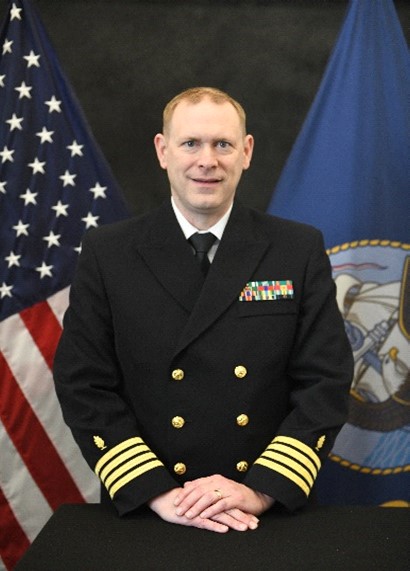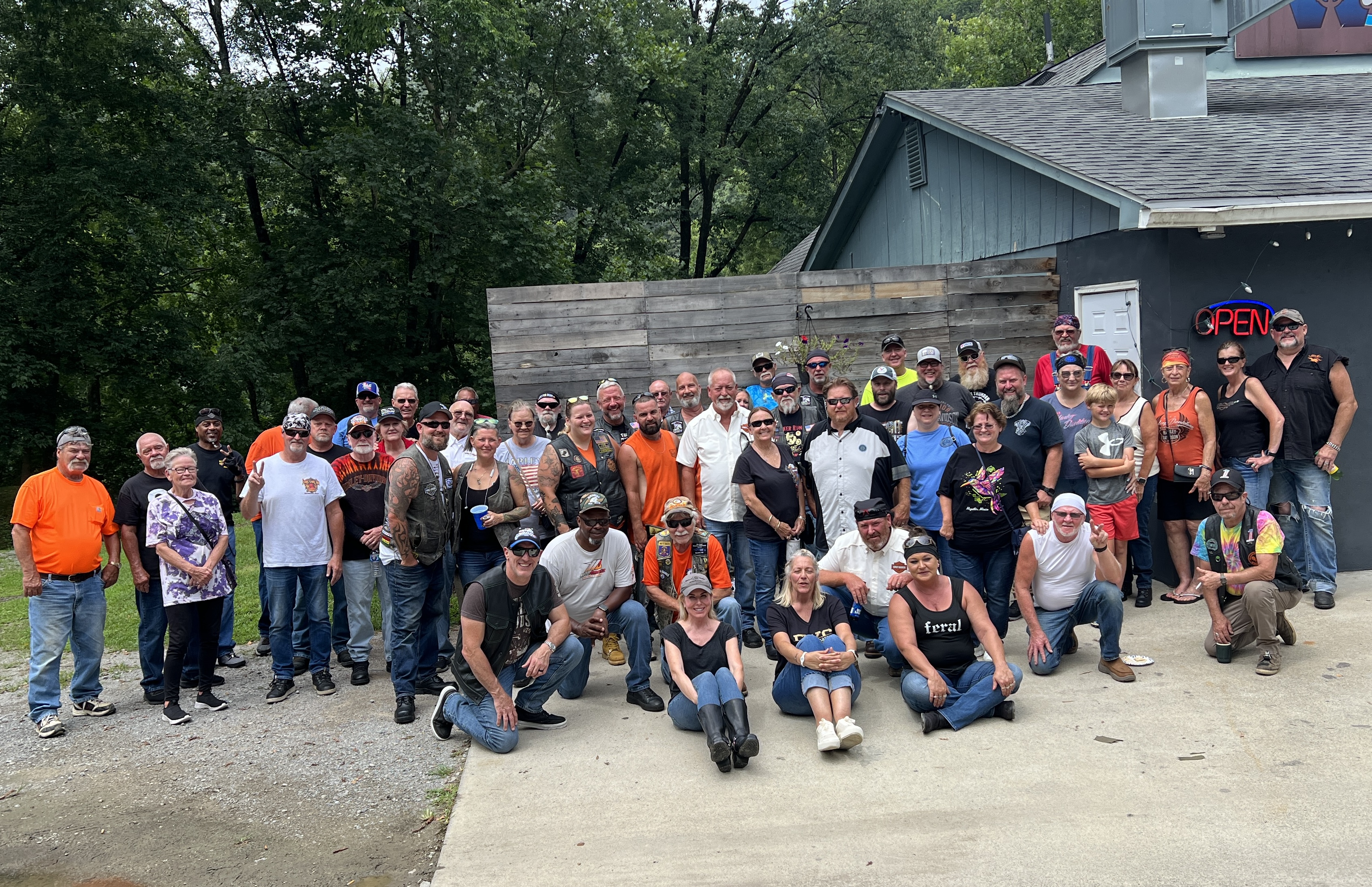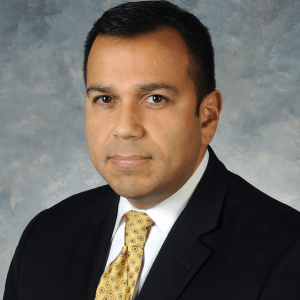Series sheds light on human trafficking
Published 10:08 am Wednesday, November 20, 2019

- Allyson Taylor, executive director of the Office of Child Abuse and Human Trafficking Prevention and Prosecution, presented the second session of the "Dangers in Plain Sight" series Monday. (Photo by Lashana Harney)
Human trafficking isn’t like the movies. It’s not a stranger kidnapping a young woman off the street and binding them in dark rooms.
Human trafficking isn’t someone hunting down victims in a white van or leaving strange items on a potential victim’s windshield.
Those are all myths perpetuated my mainstream media, Allyson Taylor, executive director of the Office of Child Abuse and Human Trafficking Prevention and Prosecution, said in the second session of the 2019 “Dangers in Plain Sight” series Monday.
Trending
The Clark County KY Agency for Substance Abuse Policy and the Winchester-Clark County Bluegrass Community and Technical College campus partnered to present the second year for the program.
BCTC and ASAP organized the program to educate and bring awareness to the issues of drugs, human trafficking, social media and bullying that affect the youth and the community.
The program is a three-part community education awareness series for K-12 parents and guardians.
According to a news release, this year’s series added new presenters with current, local information.
The first part of the 2019 series covered community drug awareness. Monday’s speaker focused on human trafficking.
“The things that are out there make my job hard,” Taylor told the crowd. “The movies and the misconceptions that they perpetuate make traffickers jobs easier.”
Trending
Taylor broke down the common misconceptions surrounding human trafficking during the session. Instead of strangers abducting people off the street, she explained how human traffickers often build relationships with their victims.
“When we think that’s how they operate, we miss that this person — who’s offering us this great job, or this person who is building this relationship and being our dream come true that we always wanted — is actually a trafficker,” Taylor said.
Human traffickers are manipulative. Rather than violence, human traffickers use psychological means such as tricking, defrauding or threatening victims into providing commercial sex or exploitative labor, Taylor said.
“Another one recently, I saw on Facebook was about a poisoned poison rose on a car handle or something,” Taylor told the crowd. “And I actually wrote false across it and shared it on my Facebook page to tell people to quit helping traffickers… If they did those kinds of things, honestly, it would be a lot easier to detect than this recruitment that happens.
“Also this idea that people are bound or chained or handcuffed or thrown in the dungeon… trafficking victims come and go. They go to their social workers. They go to their substance abuse counselors. They go to school. They’re not bound by anything physical. It’s a much more emotional and psychological bind.”
It’s another common myth that all human trafficking involves commercial sex, but Taylor said that isn’t always the case. Human trafficking is the use of force, fraud or coercion to get another person to provide labor — which could include labor in restaurants, cleaning services, construction, factories or more — or commercial sex.
Labor trafficking typically occurs to foreign nationals, but that’s not always the case, Taylor said. One common form of labor trafficking is recruiting children to sell various items such as candy, magazines, etcetera.
“They’re put on a quota,” Taylor said. “They’re not allowed to eat, sleep or take a break, anything until they meet their quota. And so it’s a forced labor situation.”
The human trafficking department once received calls of children going up to cars at a McDonald’s late at night asking drivers to buy their candy so that they could go to bed. Taylor told of another story of a woman in Lawrenceburg who had a little boy show up on her door asking if he could use the restroom. The woman then heard the boy drinking water of the bathroom sink.
“It just gave her a feeling like something’s wrong,” Taylor told the crowd. “So, if your gut tells you something’s wrong, trust your gut.”
Taylor said she also wanted to make something else clear: Human trafficking occurs right here in Kentucky.
“Trafficking victims aren’t going to run to you and say, ‘I’m a trafficking victim. Please help me.’ Most of the time they don’t even identify as a victim or they don’t really want to admit to you what they’ve been involved in,” Taylor told the crowd. “And a lot of times that’s because they go willingly to begin with, not realizing what they’re getting themselves into.”
Taylor said commercial sex doesn’t have to include an exchange of money. It can include an exchange of anything of value such as drugs, expensive shoes or purses or more.
“There has to be that exchange of value or that attempted exchange of value,” Taylor said. “If that’s not there, you might have some other sex crime, but you don’t have sex trafficking.”
Commercial sex includes the acts of stripping, prostitution and pornography. Taylor said a lot of commercial sex is sold online. She showed the crowd examples of sex ads online. Prostituion trafficking is a $150 billion industry worldwide, and in the U.S., it’s a $32 billion industry, Taylor said.
“Human trade has surpassed the gun trade, and it likely will surpass the drug trade at some point,” Taylor told the crowd.
Traffickers are getting rich, and the system has made it easy for them, Taylor said, because of a lack of concrete laws for so much time.
Half of the victims of the sex trade are children under the age of 18; the average age a teen enters the sex trade in the U.S. is 12 to 14 years old, Taylor said.
It’s also not uncommon for parents to trade their children for sex as a way to procure drugs or to pay off a debt, Taylor said.
Most of the victims are female, but males can be victims as well.
“We also know that boys and males under report sexual abuse,” Taylor said.
The most at-risk population to human trafficking, Taylor said, is what she calls “system kids.” About 70 percent of children in the sex trade are from the foster care system or have history with the system.
“Those kids are at risk because … they have a history of trauma, which makes them easier to victimize, but also because a lot of them … somebody has said ‘I’m done with you. I’m not dealing with you anymore.’ Traffickers know that those kids are out on the street and are vulnerable,” Taylor said.
Taylor said 1 in 3 children who “runaway” from the system will participate in “survival sex,” which is the exchange of sex for something that they need to survive such as shelter, food or whatever, within 48 hours of being on the street.
With the internet, though, Taylor said, traffickers have more access to children.
“If you’re online, you’re out on the street in a whole different way,” she said.
Taylor said about 80 to 90 percent of victims of the sex trade also have a history of sexual abuse.
Taylor also talked about possible signs that someone is a victim of human trafficking. Signs could include signs of physical abuse such as burn marks, bruises or cuts, unexplained absences from class, less appropriately dressed than before, sexualized behavior, overly tired in class, withdrawn, depressed, distracted or checked out, brags about making or having lots of money, having a sexually transmitted disease, not knowing their address, displays expensive clothes, accessories or shoes, new tattoo (tattoos are often used by pimps as a way to brand victims. Tattoos of a name, symbol of money or barcode could indicate trafficking), older boyfriend or new friends with a different lifestyle, talks about wild parties or invites other students to attend parties, has multiple hotel keys, multiple cell phones and more.
Taylor also talked about how Bitcoin was initially developed to fuel the human trafficking market as credit card companies began cutting ties with sites known for letting human traffickers off the hook. Other digital currency such as money that people can send on social media (Facebook, Snapchat, etc.) makes it easier for traffickers to sell sex. Traffickers are also known for accepting gift cards, Taylor said.
Taylor said a lot of victims are also forced to recruit others into the trade. Some victims are forcibly drugged so that they become addicted and dependent on their trafficker.
“Traffickers use those drugs as a form of control,” Taylor said.
Taylor also talked about sextortion, which is sexual exploitation in which abuse of power is the means of coercion. Oftentimes, these cases include someone threatening to release of sexual images or information as a means of coercion.
“Sextortion in and of itself is not trafficking, but it’s a big problem,” Taylor said.
Sextortion can lead to trafficking, though, she said.
“People ask, have you worked cases like that? I’ve got two or three right now,” Taylor said. “In far southern Kentucky … a guy met kids on Snapchat. These kids think that it disappears because it’s on Snapchat… My victims were 12 year olds, and they ended up having sex with the man so that their pictures wouldn’t be outed.”
Prostituted women are heavily and unjustly criminalized, despite evidence that the vast majority are coerced and exploited into the sex trade, Taylor said. However, Taylor said the decriminalization or legalization of prostitution or sex work could lead to a rise in human trafficking or make human traffickers harder to catch.
Taylor ended the session showing the crowd the “faces of prostitution,” which featured the mugshots of sex workers who were arrested over a course of five years. Taylor said the project showed the worsening conditions the women endured, indicating they were exploited and forced into the trade. Many of the women displayed black eyes or looked as if they were under the influence of drugs. Many also looked thin and malnourished.
Taylor urged the crowd to look for the signs of human trafficking, to report when neccessary, to quit perpetuating the myths, to educate others on the truth of the “pimp lifestyle” and that sex work is not glamorous, and to lastly, show compassion for others.
Taylor said people might think the people they see “on the street” chose that life, but most likely, they did not.
The last “Dangers in Plain Sight” session will cover online dangers and bullying Feb. 6, presented by the Winchester Police Department. In addition to the presenters, each event includes a free dinner and resource tables.
All events take place at the BCTC campus in Winchester. Dinner starts at 5:15 p.m. and the event begins at 6:15 p.m.
Kentucky law requires any person with a suspicion that a child is being trafficked for sex or labor report that suspicision to the Cabinet for Health and Family Services by calling 1-877-KYSAFE1.
If someone is in immediate danger, call 911 but do not attempt to assist the victim.
For other ways to get help, report a tip or to request services, text 233733, chat online at www.humantraffickinghotline.org, or call the National Human Trafficking Hotline at 888-373-7888. All services are available 24/7.







